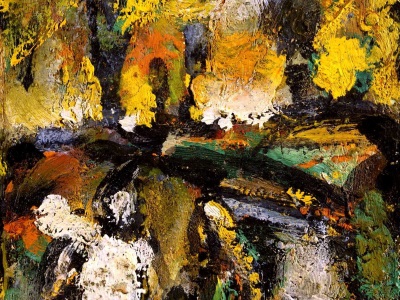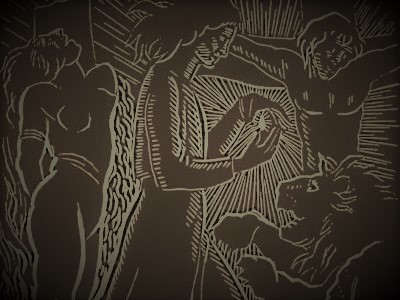We know that we are surrounded by enemies of the Christian faith. In such times the sacrament of forgiveness is needed more than ever, for the enemy’s furious hatred challenges us to meet him with the opposite. Our enemies are the very ones we should love by having faith and understanding for them, knowing that in spite of their blindness they have a divine spark that needs to be fanned. Love for our enemies has to be so real that it reaches their hearts. For that is what love does. When that happens, we will find the hidden spark from God in the heart of even the greatest sinner.
- Eberhard Arnold
Selected Reading
The Jesus of the Four Gospels
Eberhard Arnold
We live in an age where it seems Jesus has become almost unknown or his words distorted and disfigured, his work weakened. All the more, we must rediscover this Jesus and hold him up before all the world. We must place the Jesus of the four Gospels in the center of our faith and our life.
Continue ReadingThe Spirit of the Early Church
Eberhard Arnold
The early church was not perfect, nor can it be blindly imitated, admits Eberhard Arnold in this groundbreaking 1926 essay. And yet, never since in church history has the Spirit been so forcefully at work. Why has the example of the first Christians never ceased to fuel renewal and reform?
Continue ReadingLetter to His Sister Hannah
Eberhard Arnold
Hannah Arnold worried that through his radical stance her brother Eberhard had denied his faith in Jesus. Arnold answered his sister in a letter which was later published in Die Wegwarte, the community’s periodical. Although he had left the evangelical movement he had never denied his faith in Jesus.
Continue ReadingThe Root of Grace
Eberhard Arnold
On his fiftieth birthday on July 26, 1933, when Eberhard Arnold gave a talk to members of the Bruderhof community, he surprised his listeners. Instead of looking back at what he had accomplished, he saw only his own human weakness and pointed his audience to One who is truly great.
Quick Quotes
We take for granted the full forgiveness of sin, which is given to us in our unworthiness. We do not need to keep affirming it; it is made sure in our hearts through the Holy Spirit; through Him we are born anew to the justice of God’s Kingdom. Not our inadequacy, but God’s perfect will is what fills our life and thinking now. Therefore, from now on our entire interest goes away from ourselves toward all peoples of the earth and toward all worlds of God, toward near and far creatures of God, toward those who have died and those yet unborn.
- Eberhard Arnold, July 1934
Union with God is possible only when all powers opposed to God, all facts and actions opposed to Him, are radically destroyed. Therefore forgiveness and removal of sin, release and liberation must be the basic substance of every experience of God. Forgiveness is the removal of things as they are. What is hostile to God cannot be present when God unites. He wants perfect purity in uniting. Thus everything that is opposed to purity must be taken away. This is forgiveness. Without this, God’s kingdom will not come.
- Eberhard Arnold










